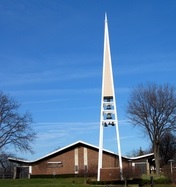Promoting Integrity at the Classroom Level:
Discuss Code
Distribute and discuss the ethical code of conduct for your discipline or college.
Schoolcraft College's "Student Rights and Responsibilities" is easy to locate on-line and is worth reviewing. "Academic Honesty," "Plagiarism," and "Cheating" are covered in sections 14, 15, and 16 of the code.
- The use of any unauthorized assistance in taking quizzes, tests or examinations.
- The use of sources beyond those authorized by the instructor in writing papers, preparing reports, solving problems or carrying out other assignments.
- The acquisition, without permission, of tests or other academic materials belonging to a member of the college faculty or staff.
- Engaging in any behavior specifically prohibited by a faculty member in the course syllabus or class discussion.
- Allowing or participating in cheating by other students.
- Copying from someone else's work.
- Submitting others' work as your own or submitting your work for others.
- Altering graded work and falsifying data.
14. "Academic Honesty"ť is expected of all students. Academic honesty is ethical behavior in which students produce their own work and do not represent others' work as their own, either by plagiarism, by cheating or by helping others to do so.
15. "Plagiarism"ť is the use, by paraphrase or direct quotation, of the published or unpublished work of another person without full and clear acknowledgement. It also includes the unacknowledged use of materials prepared by another person or agency engaged in the selling of term papers or other academic materials.
16. "Cheating"ť is:
